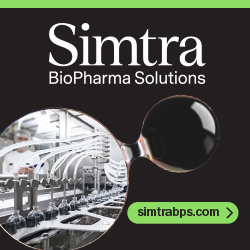Fate Therapeutics Announces Preclinical Publication Highlighting Derivation of CD8αβ T Cells From TCR-CAR+ Induced Pluripotent Stem Cells
Fate Therapeutics, Inc. recently announced the publication of preclinical study results demonstrating the successful generation, durable anti-tumor response, and functional persistence of TCR–CAR+ iPSC-derived CD8αβ T cells from induced pluripotent stem cells (iPSCs). The CD8αβ T cells were derived from a single engineered iPSC integrating a novel chimeric antigen receptor (CAR) transgene into the T-cell receptor alpha constant (TRAC) locus, ensuring complete bi-allelic disruption of T-cell receptor (TCR) expression and promoting uniform CAR expression. The discoveries were made under a multi-year research collaboration between the company and Memorial Sloan Kettering Cancer Center (MSK) led by Michel Sadelain, MD, PhD, Director, Center for Cell Engineering and Head, Gene Expression and Gene Transfer Laboratory, and were published this week in Nature Biomedical Engineering.
“Scientists have previously differentiated induced pluripotent stem cells to form CAR T cells, however, it was observed that premature αβTCR or constitutive CAR expression resulted in the derivation of innate-like T cells that do not acquire the phenotype nor exhibit the function of conventional CD8αβ T cells,” said Dr. Sadelain. “Our published findings are the first to show the generation of iPSC-derived CD8αβ CAR T cells lacking a TCR, where timed and calibrated expression of the CAR in place of the TCR successfully drove T-cell maturation and promoted the acquisition of a transcriptional and functional profile more closely resembling that of natural CD8αβ T cells.”
The mass production of TCR–CAR+ CD8αβ T cells from master engineered iPSC lines is a promising approach for development of off-the-shelf, cell-based cancer immunotherapies. Through a systematic assessment of factors that affect T-cell lineage commitment and induce adaptive T-cell formation, the researchers discovered that integrating the CAR construct into the TRAC locus delayed its expression and drove T-cell lineage commitment, and that regulation of CAR signaling strength promoted the generation of CD4+CD8+ double-positive cells mimicking thymic development in the absence of a TCR. Subsequent stimulation of the CAR matured the double-positive population into single-positive CD8αβ T cells with a phenotype highly correlated with peripheral blood CD8αβ effector T cells and distinct from γδ T cells and natural killer cells. Preclinical studies showed that iPSC-derived TCR–CAR+ CD8αβ T cells were able to repeatedly lyse tumor cells in vitro and durably control leukemia in vivo, with persistence in the bone marrow, spleen, and blood, in a systemic NALM6 leukemia model.
“These published findings continue to support our unique ability to generate TCR–CAR+ CD8αβ T cells from master engineered iPSC lines that exhibit a phenotypic profile and anti-tumor activity comparable to healthy donor-derived peripheral blood CAR T cells in preclinical model systems,” said Scott Wolchko, President and Chief Executive Officer of Fate Therapeutics. “We believe our off-the-shelf, iPSC-derived CAR T cell programs overcome the numerous challenges associated with the manufacture, consistency, and reach of autologous and allogeneic CAR T cells, and we look forward to sharing initial clinical data from our landmark Phase 1 study of FT819 later this year.”
The company is conducting a multicenter Phase 1 study of FT819, the first T-cell therapy manufactured from a clonal master iPSC line to undergo clinical investigation. The product candidate’s clonal engineered master iPSC line is created from a single iPSC that has a novel CD19-targeted 1XX CAR construct integrated into the TRAC locus, ensuring complete bi-allelic disruption of TCR expression to prevent graft-versus-host disease and promoting uniform CAR expression for enhanced anti-tumor activity. Dose escalation is currently ongoing in single-dose and multi-dose escalation cohorts for relapsed/refractory B-cell malignancies.
Pursuant to a license agreement with MSK, Fate Therapeutics has an exclusive license for all human therapeutic use to US Patent No. 10,370,452, which covers compositions and uses of effector T cells expressing a CAR, where such T cells are derived from a pluripotent stem cell including an iPSC. In addition to the patent rights licensed from MSK, the Company owns an extensive intellectual property portfolio that broadly covers compositions and methods for the genome editing of iPSCs using CRISPR and other nucleases, including the use of CRISPR to insert a CAR in the TRAC locus for endogenous transcriptional control.
Fate Therapeutics has licensed intellectual property from MSK on which Dr. Sadelain is an inventor. As a result of the licensing arrangement, MSK has financial interests related to Fate Therapeutics.
The company’s proprietary induced pluripotent stem cell (iPSC) product platform enables mass production of off-the-shelf, engineered, homogeneous cell products that are designed to be administered with multiple doses to deliver more effective pharmacologic activity, including in combination with other cancer treatments. Human iPSCs possess the unique dual properties of unlimited self-renewal and differentiation potential into all cell types of the body. The Company’s first-of-kind approach involves engineering human iPSCs in a one-time genetic modification event and selecting a single engineered iPSC for maintenance as a clonal master iPSC line. Analogous to master cell lines used to manufacture biopharmaceutical drug products such as monoclonal antibodies, clonal master iPSC lines are a renewable source for manufacturing cell therapy products which are well-defined and uniform in composition, can be mass produced at significant scale in a cost-effective manner, and can be delivered off-the-shelf for patient treatment. As a result, the company’s platform is uniquely designed to overcome numerous limitations associated with the production of cell therapies using patient- or donor-sourced cells, which is logistically complex and expensive and is subject to batch-to-batch and cell-to-cell variability that can affect clinical safety and efficacy. Fate Therapeutics’ iPSC product platform is supported by an intellectual property portfolio of over 350 issued patents and 150 pending patent applications.
FT819 is an investigational, universal, off-the-shelf, T-cell receptor (TCR)-less CD19 chimeric antigen receptor (CAR) T-cell cancer immunotherapy derived from a clonal master induced pluripotent stem cell (iPSC) line, which is engineered with the following features designed to improve the safety and efficacy of CAR19 T-cell therapy: a novel 1XX CAR signaling domain, which has been shown to extend T-cell effector function without eliciting exhaustion; integration of the CAR19 transgene directly into the T-cell receptor alpha constant (TRAC) locus, which has been shown to promote uniform CAR19 expression and enhanced T-cell potency; and complete bi-allelic disruption of TCR expression for the prevention of graft-versus-host disease. FT819 demonstrated antigen-specific cytolytic activity in vitro against CD19-expressing leukemia and lymphoma cell lines comparable to that of primary CAR T cells, and persisted and maintained tumor clearance in the bone marrow in an in vivo disseminated xenograft model of lymphoblastic leukemia. FT819 is being investigated in a multicenter Phase 1 clinical trial for the treatment of relapsed / refractory B-cell malignancies, including B-cell lymphoma, chronic lymphocytic leukemia, and acute lymphoblastic leukemia (NCT04629729).
Fate Therapeutics is a clinical-stage biopharmaceutical company dedicated to the development of first-in-class cellular immunotherapies for patients with cancer. The company has established a leadership position in the clinical development and manufacture of universal, off-the-shelf cell products using its proprietary induced pluripotent stem cell (iPSC) product platform. The company’s immuno-oncology pipeline includes off-the-shelf, iPSC-derived natural killer (NK) cell and T-cell product candidates, which are designed to synergize with well-established cancer therapies, including immune checkpoint inhibitors and monoclonal antibodies, and to target tumor-associated antigens using chimeric antigen receptors (CARs). Fate Therapeutics is headquartered in San Diego, CA. For more information, visit www.fatetherapeutics.com.
Total Page Views: 1117

















